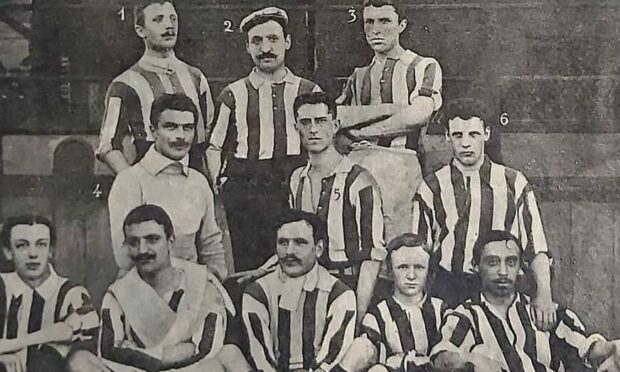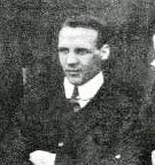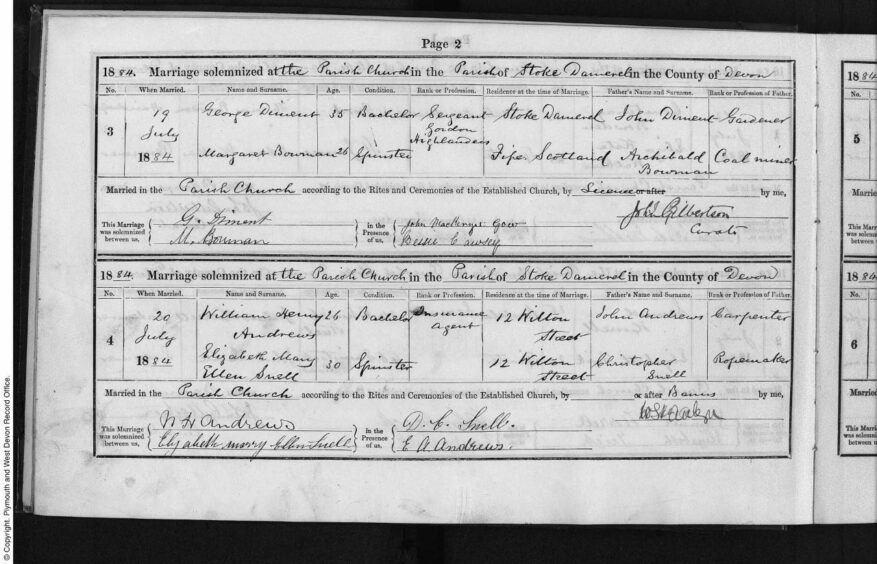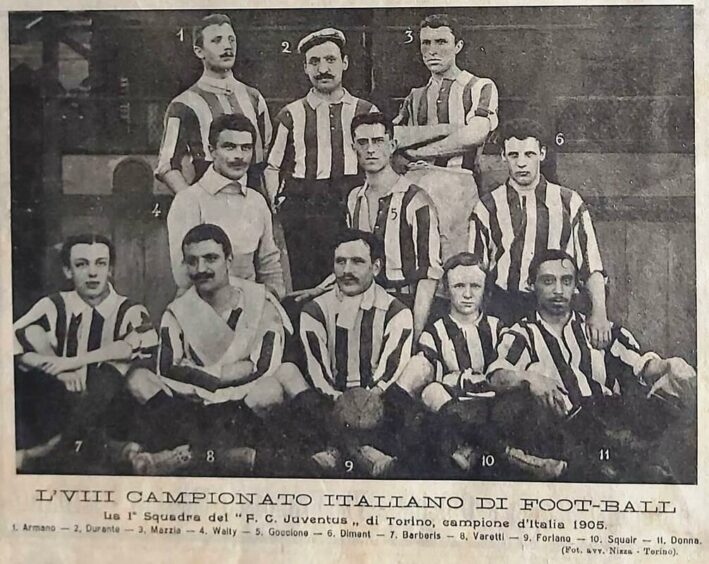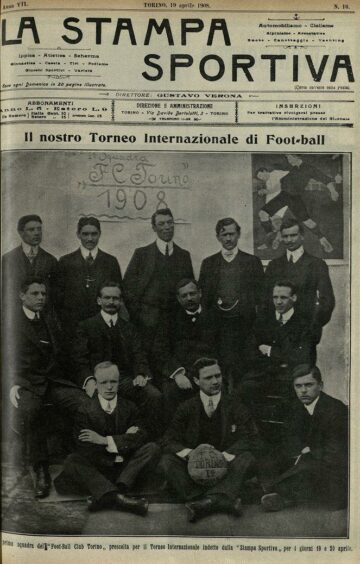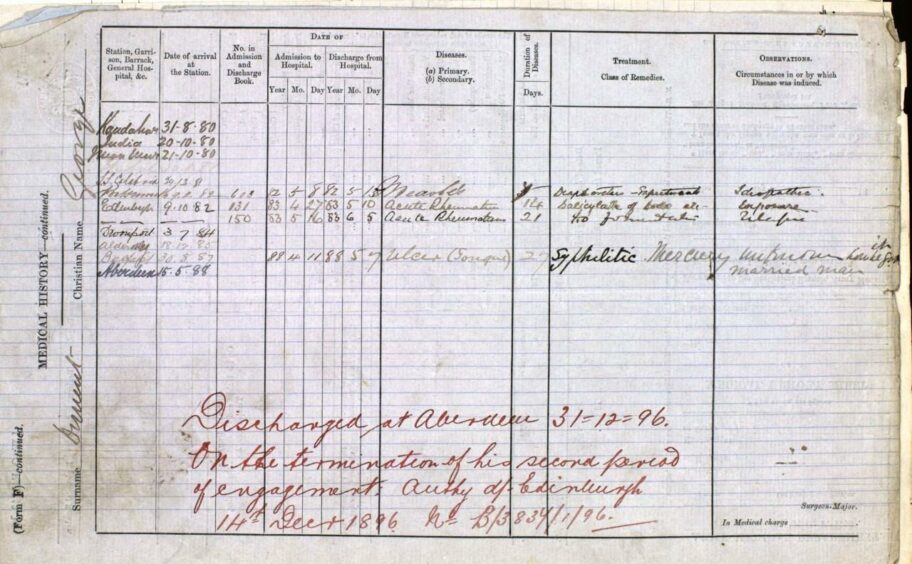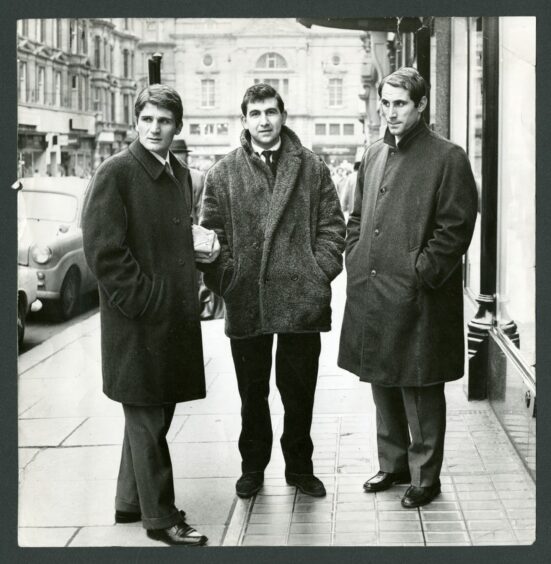A number of leading Scottish footballers, including Denis Law, Graeme Souness and Joe Jordan, have paraded their skills in Italy.
Yet only two men have ever tasted championship victory and savoured la dolce vita at the same time – and the chances are you could mention the names Jack Diment and James Squair to a group of soccer aficionados and even they would be none the wiser about these names.
It’s surely overdue, therefore, to highlight the extraordinary fashion in which this duo were welcomed into the Juventus ranks in 1904.
And how, within a manner of months, they had helped the club win their first-ever Scudetto title.
Diment, who grew up in Durris in Aberdeenshire, and Squair, from Edinburgh, met up in Newcastle where they began a career in shipping.
But, at only 19 and 20, they embarked on a European adventure that would bring them acclaim in Turin and the chance to advance further in the game.
The north-east talent even progressed to the newly-formed AC Milan and sparked a riot later in his career. Whereas Squair, sadly, died at only 25.
But who were these characters and how did they end up so far from home?
In the autumn of 1904, they joined the staff of Walter F Becker, an influential steamship owner with business interests in several Italian ports and whose passion for football had led to him founding a club in Messina in Sicily.
John Bowman Diment, known as Jack, was actually born in Plymouth in 1885, but that was only because his father, a sergeant in the Gordon Highlanders, had been posted briefly to Devonport Barracks.
Soon enough, the family returned to their roots and the young lad grew up in Durris, west of Aberdeen, where he went to school.
Both took the high road to Italy
James Macgregor Squair was born in 1884, but his mother died when he was only three and after his father remarried, worked as a clerk in Newcastle.
Both were keen to expand their horizons and they relished being employed by Becker, who ensured they had a meteoric rise into the Juventus first team.
Indeed, within a few weeks, they were making their debuts in November 1904 during a 1-0 defeat to Genoa in a contest for the Palla Dabbles – the specially created silver ball donated by philanthropist Henri Dabbles for a series of challenge matches, with the winner taking possession of the elegant trophy.
It may have been a slightly inauspicious debut but they soon became an integral part of a powerful Juve line-up.
Diment, at right half, was known as “Il Mulo” – the mule – for his tenacity and no-nonsense approach, while Squair, at inside left, was a quick and dynamic performer.
Renowned football historian Andy Mitchell has investigated the careers of these pioneering Scots and discovered the impact they had on their club.
He said: “Early in 1905, their influence was an important factor as Juventus lifted the Campionato Prima Categoria (as Serie A was then known).
“By modern standards, it was not a lengthy campaign, with Juventus gaining the right to represent Piedmont by beating city rivals Torinese.
“That qualified them for a mini league where they faced the champions of Lombardy and Liguria, US Milanese and Genoa, respectively.
“The three teams faced one another, home and away, over the course of six weeks, and Juventus had no difficulty defeating Milanese twice, with Squair scoring one of the goals, while both games against Genoa ended in draws.
“That left them with six points before the final match of the series when, to general amazement, Genoa failed to beat Milanese, which meant that Juventus, a point clear, were declared champions of Italy for the first time.”
There were raucous celebrations at the club and across the city and the triumphant side posed for the cover of La Stampa Sportiva, with Diment and Squair taking pride of place in the photo.
And though the two “foreigners” were widely referred to as English, they were very proud of their Scottish roots and continued to make waves in the sport.
It wasn’t without controversy, however. Juventus came close to retaining their title in 1906 but when a play-off against Milan ended in stalemate they refused to replay the match in protest at the venue being in their opponents’ city and their opponents were awarded the spoils.
There was further discord within the ranks, following the establishment of a new club, Torino, and Diment, Squair and another man with Scottish connections, James McQueen, all decided to join the new organisation in the 1907-08 season, as the prelude to heading off on separate paths.
McQueen, a language teacher, journeyed to the south of France and played for Olympique de Marseille, prior to winning the French title in 1913 with Stade Helvetique.
Tragically, by that stage, Squair, who had relocated to Naples and fallen in love with Mabel Stroud, the daughter of a lace manufacturer, had succumbed to illness just five days after the birth of his daughter, Emily.
But it was a different story altogether for the rough diamond Diment, who was capable of turning any minor kerfuffle into a full-scale stramash.
As Mitchell said: “He remained in Turin and was in a relationship with Mabel’s sister, Olga, and he spent another season with Torino, playing matches for them in March 1909 when his team won the Palla Dabbles on two consecutive weeks.
“His work then took him to Milan and, within a week of moving he had joined Milan Cricket and Football Club – which subsequently became AC Milan – and he played regularly with them for a year.
“However, in December, in the expanded Prima Categoria, he showed he had lost none of his combative spirit when he punched an Andrea Doria player in retaliation for an off-the-ball kick, provoking a crowd invasion and the abandonment of the fixture.”
That was the end of his career in Italy, as he and Olga returned to Britain in the summer of 1910.
But it wasn’t the last action he experienced in his incident-packed life.
On the contrary, he joined the Royal Army Service Corps during the First World War and spent five years in uniform, serving in Salonika until he was invalided home during a turbulent episode that had a very personal connection to Andy Mitchell.
He said: “I was fascinated to find that he travelled back on the hospital ship Britannic on which my grandmother Sheila Macbeth was serving as a nurse; the ship was sunk by a mine in the Aegean Sea on its very next voyage but my grandmother survived to tell the tale.”
This fellow Diment was no shrinking violet and it was obvious he had wanderlust in his DNA.
He spent an extra year in the army, divorced Olga, returned to Italy and married Kate Clarke in 1932 and their son, Donald, was born in Turin, where the family stayed until the outbreak of war.
And even after coming back to Britain and settling in Hull, the Scot remained a keen football enthusiast all the way through until his death in 1978 at the grand old age of 93.
What a peripatetic path he followed, and what a series of prizes he collected.
Mitchell concluded: “Not many Scots have found success abroad in football so let’s celebrate Jack Diment and James Squair, whose exploits with Juventus, Torino and Milan are little known, but whose title win in 1905 remains a unique achievement.”
It’s a tale straight from the pages of Roy of the Rovers and it features a duo who completed their very own Italian Job!
The connection between Juventus and Scotland didn’t end with the success of Jack Diment and James Squair more than 100 years ago.
On the contrary, north-east coach Paul Clelland has told the Press & Journal about the increasing success of the Juventus Academy Scotland project throughout the country.
Launched in Scotland in 2019, the global programme focuses on offering youngsters the chance to grow up and develop their confidence through football and Paul and his colleagues are involved in regular training sessions with kids at Aberdeen Sports Village.
Juventus Academy all about kids being good kids
He explained: “We run training camps in the school holidays across Scotland and my interest in this started when I was in Cyprus and discovered there was a Juventus Academy there.
“It’s primarily centred on helping youngsters to be good kids and learn skills through football in a neutral environment.
“I live in Newburgh (in Aberdeenshire) and I’d never heard about the two lads who won the championship with Juventus back in the 1900s, but it’s a fascinating story.
“Perhaps, in the future, other Scots will end up playing in Turin, and it would be nice if we encouraged that in any way.
“We’ve hosted training camps in Aberdeen, Edinburgh, Stonehaven, Inverness and Stirling and although Covid has presented some challenges, we are pleased with the progress we have made.
“We’re looking forward to the year ahead, starting in Glasgow and Edinburgh this Easter.
“Juventus are committed to the development of young footballers in Scotland and I would urge anybody to have a look at what we are doing.”
For more information contact Paul at Scotland@juventus-academy.com or check out academy.juventus.com/nl/training-camp-scotland/
